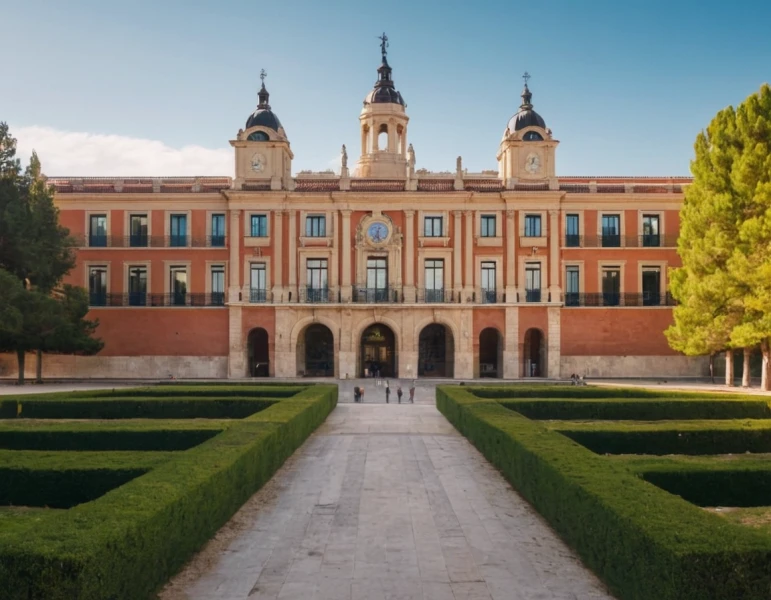Educa UNIVERSITY|EDUCATION
Education in Madrid: A real and personal perspective
Related Masters
Education in Madrid: A real and personal perspective
Hello, I'm Amadeo Perez, a guy who has lived more years in Madrid than a monument of the Puerta de Alcala. And today I come to talk to you about a topic that I have had to live closely and that I know like the back of my hand: education in Madrid.
Since my school years in the 80s until today, I have seen how the education system in this region has evolved. And believe me, I'm going to tell you about it without mincing words. Because yes, education in Madrid has its lights, its shadows and its gray areas. What is Education in Madrid?
Education in Madrid covers a wide spectrum ranging from Childhood Education to Compulsory Secondary Education (ESO), High School and Vocational Training (FP). If you're wondering, "And what does that really mean?", let me explain it my way.
In the Community of Madrid, education is organized in several levels, with specific programs such as the famous bilingualism that they have implemented in many public and charter schools. This means that children not only learn English as a subject, but some subjects are taught directly in English. Sounds complicated? Well, I'll tell you that there is everything from students who come out bilingual to others who, well, not so much.
Madrid's bilingual program is one of the most ambitious in Spain. Is it perfect? No, but it has improved quite a bit in recent years thanks to a renewed focus on providing real learning opportunities for all students.
2. Educational Options in the Community of Madrid
Here comes the interesting part. Throughout my years, I have seen how secondary education has transformed. When I was a kid, there were hardly any options. Now, young people in Madrid have a myriad of educational routes at their disposal, especially in ESO and Bachillerato.
Did you know that in the fourth year of ESO you can choose from five different options? From Scientific to Artistic, passing through Technological and Humanistic. In addition, they have the opportunity to choose subjects such as Economics and Entrepreneurship or Digitalization. We didn't have that! In my day, if you wanted to be an artist, you had to do it on your own, with borrowed books and a second-hand guitar.
But beware, not everything is flowers and birds in Madrid education. There are clear differences between public, charter and private schools. While some public schools offer exceptional programs, others struggle with lack of resources and student overload. Here, the key is to be well informed before deciding which school to take your children to.
3. Kindergarten and Primary Education in Madrid
If you are a parent looking for the best educational option for your children, the offer in Madrid is varied. From public schools with excellent programs to private schools that empty your wallet, but promise you the best for your children.
The Childhood Education is divided into two cycles: from 0 to 3 years and from 3 to 6 years. Although the first cycle is not compulsory, the demand is very high in centers that offer a more modern and playful approach. On the other hand, in Primary Education, public schools are increasingly introducing reinforcement programs in basic skills such as reading and mathematics, thanks to the administration's new approach.
4. ESO and Diversification Programs
This is where things get serious. During Compulsory Secondary Education, students go through a period of intense personal and academic changes. In Madrid, many centers have implemented curricular diversification programs to help those who, for one reason or another, need a more personalized approach. There is no "one size fits all" here.
And don't give me that "ESO is easy" stuff. It's a challenge, both for students and teachers, who have to deal with hormonally boiling adolescents. Despite the difficulties, the Community of Madrid is working to improve attention to diversity and ensure that all students have a fair chance to succeed.
5. Baccalaureate and Vocational Training: Which path to take?
Once they finish ESO, Madrid students have to make a decision that could define their future: Baccalaureate or Vocational Training. This is where the famous dilemma comes in. Although for years the Baccalaureate was seen as the only path to university, Vocational Training is gaining ground thanks to its practical approach and high employability.
Madrid is investing in Dual FP, a model that combines classroom studies with internships in companies. This allows young people to gain real work experience while studying. As someone who has worked with local companies, I can tell you that demand for qualified professionals is through the roof.
6. Is Education in Madrid really inclusive?
Okay, here we go with a thorny issue. Educational inclusion is an objective that Madrid pursues with specific programs for students with special needs. However, the reality in the classroom is sometimes different. Despite the efforts, many teachers are overwhelmed, especially in public schools where resources are not always adequate.
Final Reflections: Where is Education in Madrid Headed?
After all that has been said, you may be wondering: Where is the future of education in Madrid headed? Well, despite the challenges, there are reasons to be optimistic. The Community of Madrid has been modernizing its infrastructures and adjusting its programs so that young people are better prepared for an ever-changing world.
And if you ask me, Amadeo Perez, I will tell you that real change will not come from politicians or laws. Change begins at home, with parents who support and motivate their children, and with teachers who, despite the difficulties, put their heart into each class.
Faculties
Trainings
The faculties embrace diverse academic disciplines and fields of study, opening doors to new perspectives and exploring different spheres of wisdom in a constantly evolving world.














